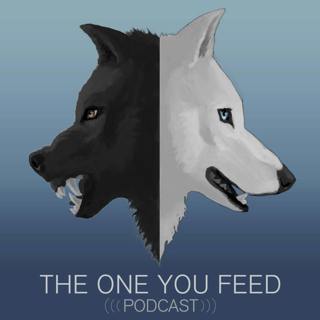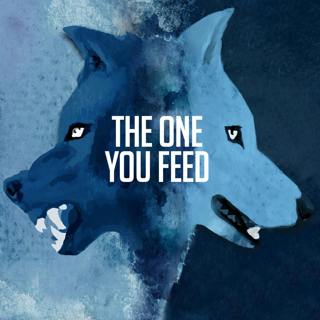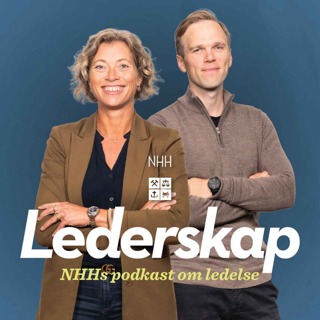
Barbara Karnes
Join our new The One You Feed Facebook Discussion Group This week we talk to Barbara Karnes about living and dying well Barbara Karnes, RN, is an internationally respected speaker, educator, author and thought leader on matters of death and dying. She is a renowned authority to explain the dying process to families, healthcare professionals and the community at large. Barbara has held both clinical and leadership positions, including staff nurse, clinical supervisor and executive director. She has won numerous awards including THE INTERNATIONAL HUMANITARIAN WOMAN OF THE YEAR 2015 from the World Humanitarian Awards. In This Interview, Barbara Karnes and I Discuss... The One You Feed parable That knowledge reduces fear How her work with & knowledge of the dying process influences how she lives That as long as we're breathing it is an act of living What to do when one receives a terminal diagnosis The labor of dying The process of gradual death The significant changes that happen 1-3 weeks before death How to know if someone is minutes to hours away from their death That dying is not painful; disease causes pain The spiritual driver releasing its hold on the physical body The importance of telling the dying person that you understand that they For more show notes visit our website Join our new The One You Feed Facebook Discussion GroupSee omnystudio.com/listener for privacy information. See Privacy Policy at https://art19.com/privacy and California Privacy Notice at https://art19.com/privacy#do-not-sell-my-info. Learn more about your ad choices. Visit megaphone.fm/adchoices
5 Okt 201644min

Melody Warnick
Join our new The One You Feed Facebook Discussion Group This week we talk to Melody Warnick Melody Warnick has been a freelance journalist for more than a decade, she has written for Reader’s Digest, O: The Oprah Magazine, Redbook, The Atlantic’s CityLab, and dozens of other publications. She is the author of This Is Where You Belong: The Art and Science of Loving the Place You Live. How we come to feel at home in our towns and cities is what Warnick sets out to discover in This Is Where You Belong. She dives into the body of research around place attachment—the deep sense of connection that binds some of us to our cities and increases our physical and emotional well-being—then travels to towns across America to see it in action. In This Interview, Melody Warnick and I Discuss... The One You Feed parable Moving often Liking where you live Committing to where you are and making the best of it The difference between people who are movers, stuck and rooted Always thinking happiness is "out there" somewhere Why walking more helps you love where you live What is your Walk Score Each town is different to each person depending on perspective- there is no objective town Where would you take visitors in your town? Taking advantage of the things your town offers The paradox of choice How important nature is in feeding your good wolf and loving where you live Buying local The power of "weak ties" Join our new The One You Feed Facebook Discussion GroupSee omnystudio.com/listener for privacy information. See Privacy Policy at https://art19.com/privacy and California Privacy Notice at https://art19.com/privacy#do-not-sell-my-info. Learn more about your ad choices. Visit megaphone.fm/adchoices
27 Sep 201644min

Taylor Hunt
Join our new The One You Feed Facebook Discussion Group This week we talk to Taylor Hunt Taylor Hunt is a devoted student of Ashtanga, a system of yoga originally transmitted by Sri K. Pattabhi Jois. The system is now transmitted by his teacher, Sharath Jois, in Mysore, India. Taylor was the first Ashtanga teacher in Ohio granted Level II Authorization to teach from the Sri K. Pattabhi Jois Ashtanga Yoga Institute (KPJAYI) in Mysore, India. He is dedicated to sharing the transformative and healing practice with others by teaching daily Mysore classes at Ashtanga Yoga Columbus and offering workshops around the country. He is also the author of the recently published book, A Way From Darkness, and director of the Trini Foundation, a non-profit organization dedicated to sharing the life-changing practice of Ashtanga with those suffering from addiction. In This Interview, Taylor Hunt and I Discuss... The One You Feed parable How the parable applies to a person with addiction Addiction = A disease of denial His book, A Way From Darkness The varying amounts of meeting attendance and other support mechanisms in the recovery process The importance of being connected to one's self in a healthy life The importance of state of mind and intention when it comes to the practice of yoga The ways emotions show up in our body Ashtanga Yoga How he helps his students connect to their yoga practice on a spiritual level The importance of not comparing your insides with someone else's outsides The surprising thing that his dad said to him when he asked for his blessing to go to India "Bring Your Ass to Class" How he built the self-discipline to cultivate a consistent yoga practice The danger of identifying ourselves with our thoughts Join our new The One You Feed Facebook Discussion GroupSee omnystudio.com/listener for privacy information. See Privacy Policy at https://art19.com/privacy and California Privacy Notice at https://art19.com/privacy#do-not-sell-my-info. Learn more about your ad choices. Visit megaphone.fm/adchoices
21 Sep 201647min

Tara Brach
Join our new The One You Feed Facebook Discussion Group This week we talk to Tara Brach Tara Brach is an American psychologist and proponent of Buddhist meditation. She is a guiding teacher and founder of the Insight Meditation Community of Washington, D.C Brach also teaches Buddhist meditation at centers for meditation and yoga in the United States and Europe including Spirit Rock Meditation Center in Woodacre, California, the Kripalu Center,and the Omega Institute for Holistic Studies. Brach is an engaged Buddhist specializing in the application of Buddhist teachings to emotional healing. Her 2003 book, Radical Acceptance: Embracing Your Life With the Heart of a Buddha, focuses on the use of practices such as mindfulness for healing trauma. Her 2013 book, True Refuge: Finding Peace and Freedom in Your Own Awakened Heart, offers practices for tapping into inner peace and wisdom in the midst of difficulty. In This Interview, Tara Brach and I Discuss... The One You Feed parable Being kind to the parts of ourselves that are more primitive The difference between feelings and thoughts Dropping the storyline The question of "What am I unwilling to feel?" How we have to go through the difficult emotions to get to peace The importance of remembering the good Not being addicted to suffering The habit of looking for what's wrong What's the moment like if there is no problem How we tend to always anticipating a problem How we are almost always lost in thought Practicing coming into our senses Self-compassion as the most important quality on the spiritual path Only being taught one type of meditation Trying different types of meditation until we find the one that works best for us. For more show notes visit our websiteSee omnystudio.com/listener for privacy information. See Privacy Policy at https://art19.com/privacy and California Privacy Notice at https://art19.com/privacy#do-not-sell-my-info. Learn more about your ad choices. Visit megaphone.fm/adchoices
14 Sep 201651min

Matthew Quick
This week we talk to Matthew Quick about mental health Our guest this week is Matthew Quick. He is here for his second visit to The One You Feed. He is the New York Times bestselling author of The Silver Linings Playbook, which was made into an Oscar-winning film; as well as many other novels. His work has been translated into more than thirty languages, received a PEN/Hemingway Award Honorable Mention, was an LA Times Book Prize finalist, a New York Times Book Review Editors’ Choice, and selected by Nancy Pearl as one of Summer’s Best Books for NPR. His latest book is called Every Exquisite Thing Our Sponsor this Week is Casper Mattress Visit casper.com/wolf and use the promo code “wolf” to get $50 off!! In This Interview, Matthew Quick and I Discuss... The One You Feed parable Short term pleasure versus long term gain Imposter Syndrome Thinking that money and fame will create happiness Removing the stigma of mental health Intrinsic vs extrinsic goals What drives us The voice of depression Finding the middle ground between rebellion and conformity The power of literature to allow us to see different worlds and possibilities How sometimes quitting is the right approach Parental understanding How his father thought he was crazy to leave a job to become a writer The pressure to be someone that everyone else wants you to be Letting our children be who they are How lonely people need to find each other How we need music and art to rally around Social anxiety and depression The role of mental health in creating art The artist as the canary in the coal mine How being adjusted to a sick society is not healthy How do we know if we are artistic, mentally ill or just different Affecting an air of superiority over "normal" people For more show notes visit our websiteSee omnystudio.com/listener for privacy information. See Privacy Policy at https://art19.com/privacy and California Privacy Notice at https://art19.com/privacy#do-not-sell-my-info. Learn more about your ad choices. Visit megaphone.fm/adchoices
7 Sep 201647min

Howard Martin (HeartMath)
Join our new The One You Feed Facebook Discussion Group This week we talk to Howard Martin (HeartMath) about the intelligence of the heart Howard Martin is one of the original leaders who helped found HeartMath. HeartMath was founded to help individuals, organizations and the global community incorporate the heart’s intelligence into their day-to-day experience of life. They do this by connecting heart and science in ways that empower people to greatly reduce stress, build resilience, and unlock their natural intuitive guidance for making better choices. During his career with HeartMath, Howard has delivered programs for Fortune 100 companies, government agencies, all four branches of the U.S. military, and many school system. He coauthored The HeartMath Solution and Heart Intelligence:Connecting with the Intuitive Guidance of the Heart. In This Interview, Howard Martin (HeartMath) and I Discuss... The One You Feed parable How polarized our world is How important our day to day choices are What "heart intelligence is" The benefit of looking "within" The science of heart intelligence What heart rate variability is How the heart is considered part of our hormonal system The two-way communication between the heart and the brain Measuring heart rate variability What heart coherence is The Heart Coherence method How it takes time for these practices to create results The difference between our heart talking and our mind Following our heart HeartMath promotion Join our new The One You Feed Facebook Discussion GroupSee omnystudio.com/listener for privacy information. See Privacy Policy at https://art19.com/privacy and California Privacy Notice at https://art19.com/privacy#do-not-sell-my-info. Learn more about your ad choices. Visit megaphone.fm/adchoices
31 Aug 201644min

Ralph White
This week we talk to Ralph White Ralph White is co-founder of the New York Open Center, America’s leading urban institution of holistic learning where his current role is Creative Director. The Open Center receives almost 60,000 visits annually from participants in its year round programs and has presented the major writers and speakers in the fields of wellness, social/ecological change, inner development, world spiritual traditions, art and creativity for over twenty seven years. He is an international speaker on spirituality, consciousness, the history of the Western Tradition. He is also editor of the award winning Lapis magazine, and taught the first fully accredited course in holistic thinking and learning at New York University. His new memoir is called: The Jeweled Highway: On The Quest For a Life of Meaning In This Interview, Ralph White and I Discuss...The One You Feed parable His latest book, The Jeweled Highway The role of music in his life His involvement in building spiritual retreat centers How you retain your centeredness in an urban environment If there are parts of the world that are more conducive to places of spiritual retreat than others The powerful role of retreat centers of bringing together people of like mind The importance of contact with nature The importance of a spiritual practice The importance of cultivating community For more show notes visit our website A grandfather is talking with his grandson and he says there are two wolves inside of us which are always at war with each other. One of them is a good wolf which represents things like kindness, bravery and love. The other is a bad wolf, which represents things like greed, hatred and fear. The grandson stops and thinks about it for a second then he looks up at his grandfather and says, “Grandfather, which one wins?” The grandfather quietly replies, the one you feed The Tale of Two Wolves is often attributed to the Cherokee indians but there seems to be no real proof of this. It has also been attributed to evangelical preacher Billy Graham and Irish Playwright George Bernard Shaw. It appears no one knows for sure but this does not diminish the power of the parable. This parable goes by many names including: The Tale of Two Wolves The Parable of the Two Wolves Two Wolves Which Wolf Do You Feed Which Wolf are You Feeding Which Wolf Will You Feed It also often features different animals, mainly two dogs.See omnystudio.com/listener for privacy information. See Privacy Policy at https://art19.com/privacy and California Privacy Notice at https://art19.com/privacy#do-not-sell-my-info. Learn more about your ad choices. Visit megaphone.fm/adchoices
24 Aug 201643min

Mini Episode Reissue
This was on my mind this week. I thought it would be good to revisit this episode- Eric Life will always take effort Most of us have a fantasy that we will hit some point where life won't take effort. We will read the right book, learn the right meditation, rub the right crystal and our troubles will vanish. I think this is a fallacy. Life always take effort, and I think this is good news. It's our unrealistic expectations that cause us problems and cause us pass over what works and chase more snake oil. Make the effort, life is worth it. Some of our most popular interviews that you might also enjoy: Kino MacGregor Strand of Oaks Mike Scott of the Waterboys Todd Henry- author of Die Empty Randy Scott HydeSee omnystudio.com/listener for privacy information. See Privacy Policy at https://art19.com/privacy and California Privacy Notice at https://art19.com/privacy#do-not-sell-my-info. Learn more about your ad choices. Visit megaphone.fm/adchoices
22 Aug 20167min






















